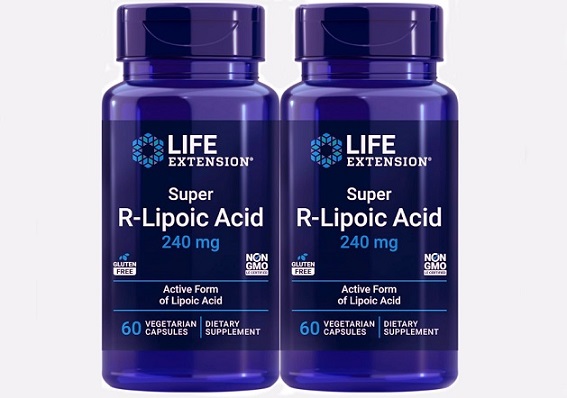New Study Shows Alpha Lipoic Acid May Help in Fight Against Omicron Variant of COVID-19
Nikhil Prasad Fact checked by:Thailand Medical News Team Jul 10, 2025 7 months, 4 days, 1 hour, 54 minutes ago
Thailand Medical News: Lipoic Acid Displays Antioxidant Action and Promising Drug Potential
A new international study conducted by researchers from the Regional University of Cariri (Brazil), Federal University of Cariri (Brazil), King Abdul-Aziz City for Science and Technology (Saudi Arabia), King Saud University (Saudi Arabia), University of Peshawar (Pakistan), University of Saskatchewan (Canada), and Abdul Wali Khan University (Pakistan), has revealed that lipoic acid (alpha-lipoic acid)—a naturally occurring compound with antioxidant properties—might be useful in treating infections caused by the Omicron variant of COVID-19.
 New Study Shows Alpha Lipoic Acid May Help in Fight Against Omicron Variant of COVID-19
New Study Shows Alpha Lipoic Acid May Help in Fight Against Omicron Variant of COVID-19
This
Thailand Medical News report highlights how lipoic acid, also known as ALA, can interact with the Omicron variant’s spike protein. Using computer simulations, the researchers examined how well ALA is absorbed and used by the body, its safety profile, and how it binds to proteins linked to the virus. Their findings suggest that ALA has a good absorption rate in the digestive tract, shows moderate bioavailability, and has favorable drug-like characteristics. It does not interfere with key liver enzymes responsible for breaking down medications, making it safer for combined use with other drugs.
What the Study Found
ALA was shown to be well-absorbed in the gut but poorly absorbed through the skin. It doesn’t cross the blood-brain barrier easily, which limits its use in brain-related conditions. However, it fits within all major pharmaceutical guidelines for drug design, including Lipinski’s rule of five, which assesses a compound’s potential as an oral drug.
The study also used advanced prediction models to analyze possible side effects. ALA showed low toxicity but was flagged for minor issues like potential eye irritation and mild skin reactions. It was not linked to serious effects such as carcinogenicity or genetic damage.
One key finding was that ALA forms strong chemical bonds with proteins involved in inflammation, like cyclooxygenase-2 (COX-2), and with enzymes such as acetylcholinesterase, which plays a role in nerve function. This means ALA could potentially help reduce inflammation and improve immune responses.
When docked virtually with the Omicron spike protein, ALA formed stable interactions, mainly through hydrogen bonding. While its binding strength was moderate (–4.4 kcal/mol), it still showed a reliable and consistent connection to the viral protein, which may hinder the virus’s ability to infect human cells.
Why This Matters
ALA is already known for its role in supporting mitochondria (the energy centers of cells) and helping recycle other antioxidants like vitamin C and glutathione. These properties are especially useful during viral infections, which tend to produce harmful oxidative stress in the body.
The study shows that ALA might he
lp reduce the damaging inflammation and oxidative stress caused by Omicron, offering a supplementary approach for patients suffering from COVID-19. Additionally, it could be particularly useful for people with diabetes, who are at higher risk of severe outcomes from COVID-19, as ALA also helps regulate insulin function and reduces blood sugar levels.
The researchers noted that although ALA appears promising in simulations, real-world clinical trials are needed to confirm its effectiveness and safety for treating COVID-19 infections.
The study findings were published in the peer reviewed journal: Scientific Reports
https://www.nature.com/articles/s41598-025-93121-2
For the latest COVID-19 News, keep on logging to
Thailand Medical News.
Read Also:
https://www.thailandmedical.news/news/alpha-lipoic-acid-reduces-harmful-compounds-in-type-2-diabetes-patients-with-neuropathy
https://www.thailandmedical.news/news/alphalipoic-acid-guards-against-kidney-damage-caused-by-alcohol
https://www.thailandmedical.news/news/alpha-lipoic-acid-offers-new-hope-for-diabetic-pain-relief
